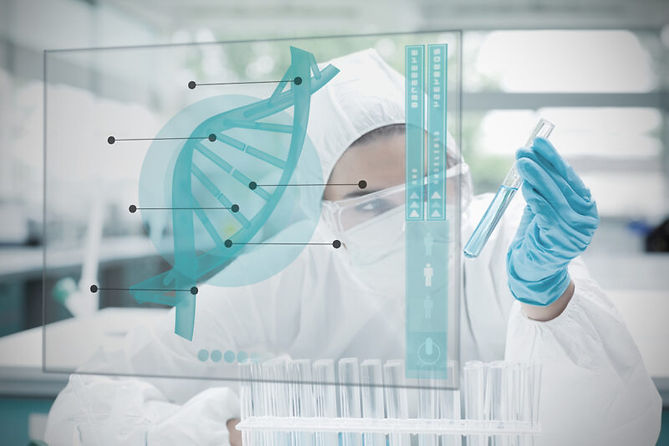
Cancer Counselor
Dear visitor of our website. With our cancer guide we would like to help you to understand how a tumor and its metastases develop and which standard therapy is possible and which alternative therapy measures have a chance of therapeutic success. A therapeutic measure has a different effect on every person, every tumor disease is not the same, although we have the same cells in our body.
formation of tumors

Tumors develop in different tissues, at every age, and present themselves clinically differently. Possess common mechanisms of formation. The gradual change in genetic information (DNA) is an important factor in the development of tumors. Depending on age and state of health, cells divide up to 1 million times a day. Cell death (apoptosis) is an important part of our immune system. In the case of cancer, it is often switched off and tumor cells can therefore divide uncontrollably and spread through our bloodstream in the body (metastases).
Characteristics of a tumor cell:
Requires little or no growth factors
Shows uncontrolled cell growth
Can divide indefinitely, no apoptosis
Have a higher mutation rate
Have an 8 times higher metabolism
glioblastoma
is the most common malignant brain tumor in adults. If possible, an attempt is made to surgically remove the tumor or to reduce the tumor mass. The average survival time is 15 months and cannot be cured with conventional medical treatment methods. Chemotherapy often does not work because the cytostatics cannot cross the blood-brain barrier.
bronchial carcinoma

Bronchial carcinoma, a malignant neoplasm of degenerated bronchial cells, is the most common cause of death in men and the second most common in women. There are 3 different therapeutic approaches that are used individually or in combination: surgery, chemotherapy and radiation. Non-small cell lung cancer is the most common form of lung cancer (NSCLC = non small cell lung cancer). This type of tumor does not respond well to chemotherapy. If possible, an operation is carried out. If the tumor cannot be completely removed, radiation is used. Supportive chemotherapy can be given before and after the operation.
Breast cancer - mammary carcinoma
Breast cancer is the most common cancer in women and is very rare in men. The therapy usually consists of a combination of surgery, cytostatics, hormone therapy and radiotherapy, adapted to the stage of the disease. New approaches in the field of cancer immunotherapy are also made possible, among other things, by monoclonal antibodies. During the operation, the degenerated cells are completely removed and a recurrence is to be prevented. Breast-conserving therapy is now possible for 60-70% of patients. After the operation, many patients with a higher risk of recurrence receive chemotherapy to kill the remaining tumor cells. As a rule, cytostatic combinations are used (Wikipedia).

Uterine cancer - uterine carcinoma
Uterine carcinoma is a malignant tumor of the epithelial cells of the uterus. Due to the location one differentiates: 1. The cervical carcinoma - cervical cancer and 2. The corpus carcinoma - carcinoma of the endometrium (uterine mucosa).
(https://de.wikipedia.org/wiki/uteruskrebs). Other names for uterine cancer are endometrial carcinoma, corpus carcinoma or uterine body cancer.
Two types of uterine cancer are differentiated: 1) Type I carcinoma: estrogen-dependent carcinoma that is influenced by hormones.
2) Type II carcinoma: estrogen-independent carcinoma that grows independently of hormones
(https://www.onmeda.de/icken/gebärmutterkrebs-cause-1414.htm ).

Uterine cancer - uterine carcinoma
Uterine carcinoma is a malignant tumor of the epithelial cells of the uterus. Due to the location one differentiates: 1. The cervical carcinoma - cervical cancer and 2. The corpus carcinoma - carcinoma of the endometrium (uterine mucosa).
(https://de.wikipedia.org/wiki/uteruskrebs). Other names for uterine cancer are endometrial carcinoma, corpus carcinoma or uterine body cancer.
Two types of uterine cancer are differentiated: 1) Type I carcinoma: estrogen-dependent carcinoma that is influenced by hormones.
2) Type II carcinoma: estrogen-independent carcinoma that grows independently of hormones
(https://www.onmeda.de/icken/gebärmutterkrebs-cause-1414.htm ).


